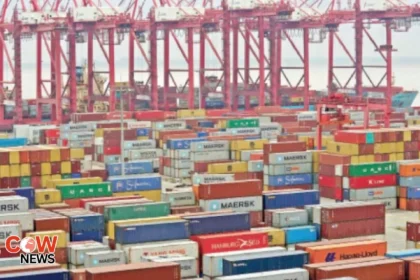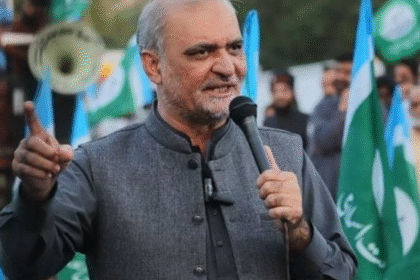Imran Khan’s Personal Doctor Denied Access to Adiala Jail
In a significant development concerning the health and well-being of former Prime Minister Imran Khan, reports have emerged that his personal doctor has been denied entry into Adiala Jail. This incident has raised serious concerns about Khan’s health, particularly given the conditions he is reportedly facing within the prison. The decision to prevent his personal doctor from visiting him not only highlights the ongoing challenges surrounding his incarceration but also raises questions about the legal and ethical standards governing the treatment of prisoners in Pakistan.
The Context of Imran Khan’s Imprisonment
Imran Khan, who served as the Prime Minister of Pakistan from August 2018 until April 2022, has found himself embroiled in numerous legal challenges since his ousting from office. Following his removal, Khan faced a barrage of allegations, including corruption, mismanagement, and incitement to violence. The circumstances surrounding his imprisonment are steeped in political controversy, with many supporters arguing that these charges are politically motivated efforts to silence him and diminish his influence within the political landscape.
His imprisonment at Adiala Jail has drawn widespread attention, both domestically and internationally, with human rights organizations expressing concerns about his treatment. The refusal to allow his personal doctor access to him further complicates the narrative surrounding his imprisonment, fueling claims that his health and well-being are not being adequately protected.
The legal battles facing Imran Khan have been characterized by a series of rapid developments, including court appearances, public rallies, and protests by his supporters. His party, Pakistan Tehreek-e-Insaf (PTI), has mobilized large crowds to demand his release and denounce what they perceive as a politically motivated crackdown on dissent. This mobilization is not only a testament to Khan’s enduring popularity but also highlights the deep divisions within Pakistani society regarding political power and accountability. Critics of the government argue that the legal proceedings against Khan have become a tool for political retribution, while his supporters assert that his imprisonment is a blatant attempt to undermine democracy in Pakistan.
Moreover, the situation is further complicated by the broader political context in the country. With upcoming elections looming, the handling of Khan’s case has implications for the current government and its legitimacy. The denial of access to his personal doctor raises serious questions about the treatment of political prisoners and the standards of human rights in Pakistan. Advocacy groups have called for transparency in the legal processes and for the protection of Khan’s rights as a former head of state. As the political landscape continues to evolve, the implications of Khan’s imprisonment and the government’s approach to dissent will undoubtedly remain a critical focal point for both supporters and opponents of the current regime.
Health Concerns and the Role of Medical Professionals
Imran Khan’s health has been a topic of significant concern, particularly given his history of medical issues. In the past, he has undergone multiple medical procedures, including surgeries related to his back and other health complications. The inability of his personal physician to access him in jail raises alarms about the adequacy of medical care he receives while incarcerated. Access to healthcare is a fundamental right, and denying this right could have severe implications for his health.
Medical professionals play a crucial role in ensuring the health and well-being of patients, particularly in the context of incarceration. They are trained to assess medical conditions, provide appropriate treatment, and advocate for their patients’ health needs. By restricting Khan’s personal doctor from entering the prison, authorities are potentially compromising his health and well-being, which could lead to further complications.
Political Implications of the Denial
The denial of access to Khan’s personal doctor also carries significant political implications. Supporters of Khan view this incident as part of a larger pattern of harassment and intimidation tactics aimed at undermining his political stature. Khan remains a pivotal figure in Pakistani politics, and his party, the Pakistan Tehreek-e-Insaf (PTI), continues to rally support in opposition to the current government.
The perception that Khan is being targeted for his political beliefs may galvanize his supporters, potentially leading to increased protests and demonstrations. The political climate in Pakistan remains volatile, and incidents like this can fuel tensions between supporters and the government. In an environment where political allegiance is deeply divided, the treatment of political prisoners can serve as a catalyst for public unrest and dissent.
Legal Framework Governing Prisoner Rights
The legal framework governing prisoners’ rights in Pakistan is outlined in various laws and regulations aimed at ensuring humane treatment for those incarcerated. The Constitution of Pakistan guarantees fundamental rights, including the right to life and dignity. Additionally, laws such as the Prisons Act of 1894 outline the standards for prison conditions and the treatment of inmates.
Imran Khan’s case raises questions about the adherence to these legal standards. The denial of access to his personal doctor may be viewed as a violation of his rights, leading to legal challenges and potential advocacy from human rights organizations. There is an urgent need for oversight to ensure that all prisoners, regardless of their political affiliations, receive fair treatment and access to necessary medical care.
The Response from Political Allies and Opponents
The incident has elicited strong reactions from both political allies and opponents of Imran Khan. Supporters of Khan have condemned the actions of the authorities, calling for immediate intervention to ensure his health is safeguarded. They argue that the denial of access to his personal doctor is a clear indication of the government’s attempts to undermine his political influence.
On the other hand, opponents of Khan’s party may argue that his legal troubles are a consequence of his own actions during his time in office. They may contend that the charges against him are legitimate and that he must face the legal consequences of his alleged misconduct. This polarized response illustrates the deeply entrenched divisions within Pakistani society regarding Khan’s legacy and the current political landscape.
International Attention and Human Rights Concerns
The international community has been closely monitoring the situation surrounding Imran Khan’s imprisonment and treatment. Human rights organizations, including Amnesty International and Human Rights Watch, have expressed concern over the political motivations behind Khan’s legal troubles and the conditions of his incarceration. The denial of access to his personal doctor may be perceived as a violation of his rights, potentially prompting calls for international intervention or condemnation.
As Pakistan navigates its complex political terrain, the treatment of political prisoners like Khan remains a critical issue for human rights advocates. The international community’s response could influence Pakistan’s standing on the global stage and may lead to increased scrutiny regarding its commitment to human rights and the rule of law.
The Future of Imran Khan and Pakistani Politics
The denial of access to Imran Khan’s personal doctor is a pivotal moment in his ongoing legal battle and the broader political landscape of Pakistan. As the situation unfolds, it remains to be seen how this incident will impact his health, the public’s perception of the government’s actions, and the future of political discourse in the country.
Supporters of Khan continue to rally around him, calling for his release and condemning the treatment he has received while in custody. The continued engagement of his political allies and the public will likely play a crucial role in shaping the narrative surrounding his imprisonment and the potential for future political developments.
The recent denial of access to Imran Khan’s personal doctor at Adiala Jail underscores the complexities of his imprisonment and the challenges he faces in the current political climate. As health concerns persist and political tensions rise, the implications of this incident extend beyond Khan himself, touching on broader issues of human rights, political freedom, and the rule of law in Pakistan. The coming weeks and months will be critical in determining the trajectory of Khan’s political future and the potential for change within Pakistan’s political landscape.
#ImranKhan #AdialaJail #PakistanPolitics #HumanRights #PoliticalPrisoners #HealthCareRights #PoliticalConflict







